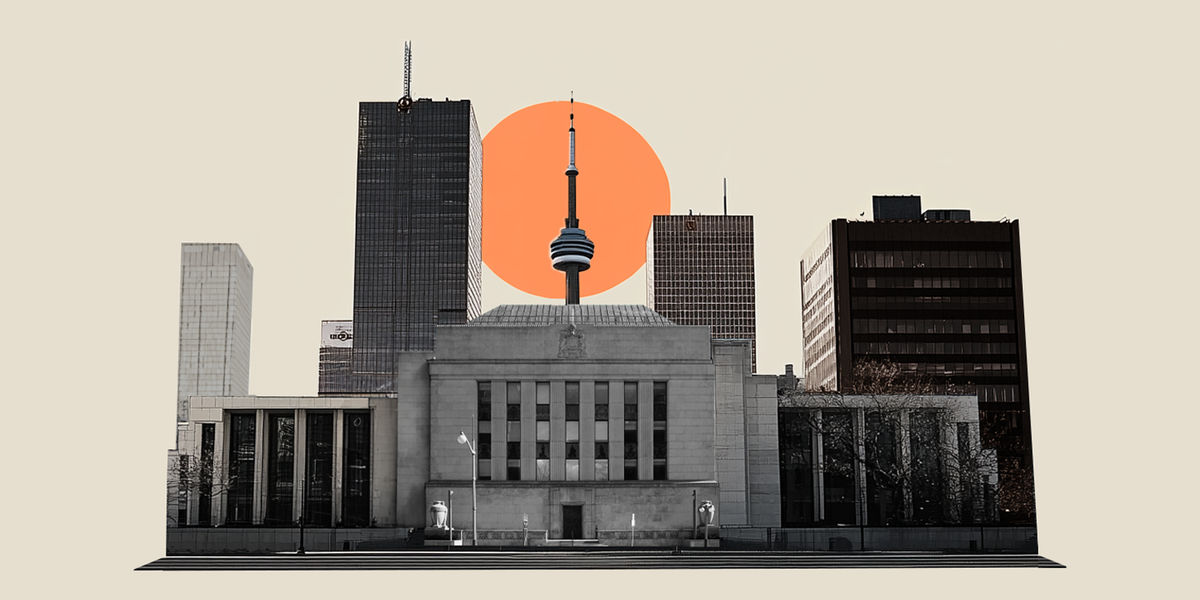Created
: 2025.05.08














![]() 2025.05.08 23:09
2025.05.08 23:09
In its annual Financial Stability Report, the Bank of Canada said the trade war with the United States threatens the Canadian economy and poses risks to financial stability, per Reuters.
"In extreme circumstances, market volatility could turn into market dysfunction."
"Canada's financial system is resilient; banks are well positioned to cope with a period of stress."
"Main near-term concern is the risk of a disorderly market sell-off; in extreme crisis, authorities might have to provide liquidity."
"Severe and long-lasting global trade war could push rate of mortgage arrears beyond levels seen in 2008-09."
"If household and business credit defaults were to occur on a large scale, banks could see greater losses than they have provisioned for."
"In a period of stress, hedge funds could find it harder to maintain their presence in government of Canada markets."
"BoC is less concerned about impact of high borrowing costs on debt serviceability than it was a year ago."
"More than 90% of mortgage holders with 5-year fixed rate mortgages should be able to make higher payments."
"Credit losses could lead banks to reduce lending and this could exacerbate an economic downturn."
"Also watching availability of credit and conditions for funding and market liquidity."
"Will closely watch indicators of financial stress and evidence of precautionary behavior by financial system participants."
USD/CAD showed no immediate reaction to this publication and was last seen gaining 0.25% on the day at 1.3872.
The Bank of Canada (BoC), based in Ottawa, is the institution that sets interest rates and manages monetary policy for Canada. It does so at eight scheduled meetings a year and ad hoc emergency meetings that are held as required. The BoC primary mandate is to maintain price stability, which means keeping inflation at between 1-3%. Its main tool for achieving this is by raising or lowering interest rates. Relatively high interest rates will usually result in a stronger Canadian Dollar (CAD) and vice versa. Other tools used include quantitative easing and tightening.
In extreme situations, the Bank of Canada can enact a policy tool called Quantitative Easing. QE is the process by which the BoC prints Canadian Dollars for the purpose of buying assets - usually government or corporate bonds - from financial institutions. QE usually results in a weaker CAD. QE is a last resort when simply lowering interest rates is unlikely to achieve the objective of price stability. The Bank of Canada used the measure during the Great Financial Crisis of 2009-11 when credit froze after banks lost faith in each other's ability to repay debts.
Quantitative tightening (QT) is the reverse of QE. It is undertaken after QE when an economic recovery is underway and inflation starts rising. Whilst in QE the Bank of Canada purchases government and corporate bonds from financial institutions to provide them with liquidity, in QT the BoC stops buying more assets, and stops reinvesting the principal maturing on the bonds it already holds. It is usually positive (or bullish) for the Canadian Dollar.
![]()
Created
: 2025.05.08
![]()
Last updated
: 2025.05.08

FXStreet is a forex information website, delivering market analysis and news articles 24/7.
It features a number of articles contributed by well-known analysts, in addition to the ones by its editorial team.
Founded in 2000 by Francesc Riverola, a Spanish economist, it has grown to become a world-renowned information website.
We hope you find this article useful. Any comments or suggestions will be greatly appreciated.
We are also looking for writers with extensive experience in forex and crypto to join us.
please contact us at [email protected].
Disclaimer:
All information and content provided on this website is provided for informational purposes only and is not intended to solicit any investment. Although all efforts are made in order to ensure that the information is correct, no guarantee is provided for the accuracy of any content on this website. Any decision made shall be the responsibility of the investor and Myforex does not take any responsibility whatsoever regarding the use of any information provided herein.
The content provided on this website belongs to Myforex and, where stated, the relevant licensors. All rights are reserved by Myforex and the relevant licensors, and no content of this website, whether in full or in part, shall be copied or displayed elsewhere without the explicit written permission of the relevant copyright holder. If you wish to use any part of the content provided on this website, please ensure that you contact Myforex.
Myforex uses cookies to improve the convenience and functionality of this website. This website may include cookies not only by us but also by third parties (advertisers, log analysts, etc.) for the purpose of tracking the activities of users. Cookie policy